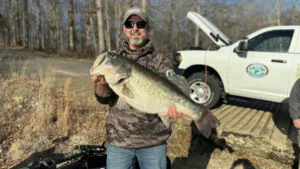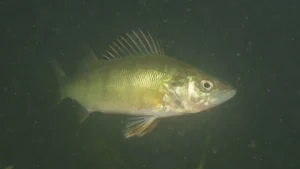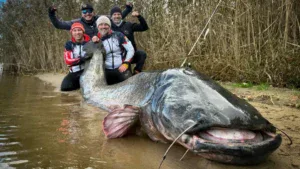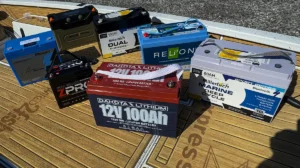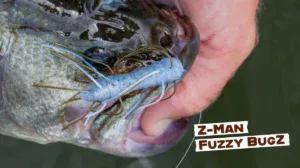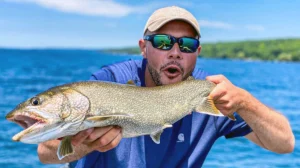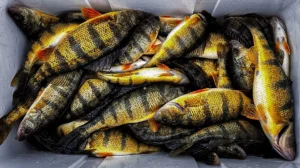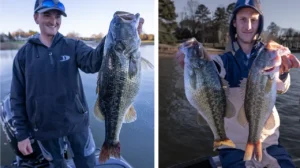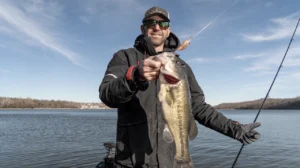In one of the largest fish and wildlife enforcement actions in recent Kentucky history, game wardens with the Kentucky Department of Fish and Wildlife Resources (KDFWR) executed a sweeping crackdown on illegal catfish harvesting.
Code-named “Operation River Raid,” this large-scale operation saw 10 search warrants executed across the state — from Paducah to Ashland — in the early hours of September 12. The target: a coordinated ring of illegal commercial fishers accused of pillaging Kentucky’s rivers, stealing thousands of pounds of catfish, and threatening the integrity of the state’s delicate aquatic ecosystem.
“We will not allow the illegal exploitation of resources inhabiting Kentucky’s rivers and lakes to go unanswered,” said Col. Jeremy McQueary, Director of Law Enforcement for KDFWR. “This operation demonstrates our commitment to protecting both the resource and the public who depend on it.”
Poachers in the Crosshairs
The sweeping enforcement action is the result of over seven months of covert surveillance, tip-offs, and evidence gathering, according to state officials. The suspects, whose names and charges are expected to be released soon, are believed to have overharvested catfish, used illegal gear, and fished in restricted waters, all while bypassing Kentucky’s commercial fishing laws.
“This was big,” Major David Marques, Assistant Director of KDFWR, told Wired2fish. “We’re talking about overharvesting, illegal gear, and pulling fish from places they had no business being. That’s how this whole thing started.”
According to Major David Marques, Assistant Director at KDFWR, this operation wasn’t about a single angler or a careless mistake — it was a complex web of overharvesting, unreported fish, fishing in restricted waters, and potentially illegal fishing gear being used statewide.
“What we’re talking about is broad-scale overharvesting, in some cases using illegal gear or fishing in restricted waters,” Marques said. “Those are the kind of things that capture our wardens’ attention and usually spearhead investigations like this.”
A Catfish Black Market
In 2024, commercial fishers in Kentucky reported harvesting over 31 million pounds of fish, with 2.5 million pounds of that being catfish. The state currently licenses around 190 permitted commercial fishers — a number that fluctuates annually.
“What we’re looking into now is how many more pounds of catfish are being harvested under the radar — off the books, sold illegally, and never reported,” Marques said. “And that’s not good, because it means the real numbers could be way higher than we ever imagined.”
With illegal operators potentially pulling in significant, untracked hauls, the ecological and economic consequences could be severe.
“These poachers not only risk depleting our natural catfish populations,” Marques warned, “they rob law-abiding sportsmen of the chance to catch these fish — and they disrupt the data our biologists rely on to manage fish stocks responsibly.”
Trophy Catfish at Risk
Kentucky’s rivers are famous for trophy blue and flathead catfish—prized by both recreational anglers and commercial interests. State regulations carefully balance sustainable harvest limits to preserve these giants for future generations. Experts fear that overharvesting, if left unchecked, could irreversibly damage catfish populations, devastating both the ecosystem and Kentucky’s fishing economy for years to come.
“Our trophy catfish limits are there for a reason,” Marques warned. “When individuals overharvest or use illegal methods, it increases the rate at which those species could deplete. It’s not just about the fish—it’s about the opportunity taken away from everyone else trying to do it the right way.”
The Cat-and-Mouse Game Behind the Bust
While the raids made headlines overnight, the legwork behind them was months in the making, involving sleepless nights, riverside stakeouts, and unrelenting pressure from a dedicated corps of wildlife officers.
“We’re talking about wardens covering three counties at a time, trying to catch these guys at 2 a.m. in total darkness,” Marques explained. “It takes luck, yes — but more than that, it takes relentless grit.”
The investigation, still ongoing, is expected to continue for several more months as officials pore through seized evidence and prepare potential prosecutions. Charges could include illegal sale of wildlife, unreported harvest, use of banned gear, and violations of restricted fishing areas.
Marques emphasized that the public often sees only the bust—but not the months of tireless surveillance, evidence gathering, and legal groundwork required to make that moment possible.
“We’re likely looking at a 10-to-12-month investigation by the time all evidence is reviewed and charges are filed,” Marques said. “There’s a lot the public doesn’t see—but it plays a huge part in successfully prosecuting wildlife crimes.”
What’s Next? The Net Is Still Closing
While “Operation River Raid” has already made waves, this is far from over. Officials say more information — including the names of those charged and the extent of the seizures — will be released in the coming weeks.
The KDFWR urges anyone with knowledge of illegal fishing or wildlife exploitation to come forward. Tips can be submitted anonymously via the Kentucky Wildlife Tip Line (1-800-25-ALERT) or the KFWLaw App using Tip411.


